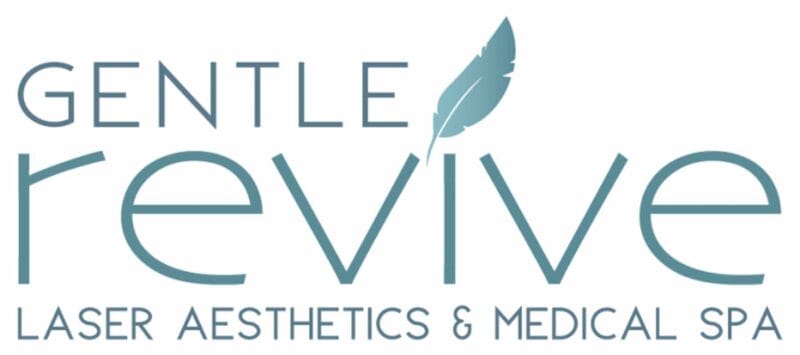
You've likely heard the theory that liposuction can be risky for seniors, but what's the truth behind this claim?
As an evidence-based and clinical perspective shows, the safety of liposuction, or lipo, for older adults hinges on various factors including their overall health, the specific technique used, and the skill of the surgeon.
While advancements in technology have made lipo more accessible and safer for a wider range of individuals, seniors must approach this procedure with caution. Understanding the nuances of laser lipo, preparing adequately, and exploring alternative fat reduction methods are crucial steps.
If you're considering this option, knowing the potential risks and benefits specific to seniors is essential in making an informed decision.
Understanding Laser Lipo
Laser lipo, a minimally invasive fat removal technique, uses targeted laser energy to liquefy fat cells, which are then removed from your body through a small incision. This advanced procedure is designed to target specific areas of fat accumulation, offering a more precise and controlled removal compared to traditional liposuction methods. It's particularly beneficial for those who are looking to refine their body contours without undergoing extensive surgery.
The technology behind laser lipo allows for a less aggressive approach, resulting in shorter recovery times and reduced discomfort post-procedure. The laser not only breaks down fat cells but also stimulates collagen production, leading to tighter skin in the treated area. This dual action makes it an attractive option for individuals seeking both fat reduction and skin tightening benefits.
It's important to understand that laser lipo isn't a weight-loss solution. Ideal candidates are those who are relatively close to their desired weight but struggle with stubborn fat pockets that are resistant to diet and exercise. Before considering laser lipo, you should consult with a qualified healthcare professional to discuss your goals, expectations, and any potential health considerations to determine if this procedure is the right choice for you.
Safety Concerns for Seniors
While laser lipo offers numerous benefits for body contouring, it's crucial to assess its safety for seniors, considering their unique health profiles and potential risks. As you age, your body undergoes significant changes that can affect how it responds to surgical procedures, including those considered minimally invasive like laser lipolysis.
Firstly, it's imperative to understand that seniors are more likely to have pre-existing health conditions, such as cardiovascular issues, diabetes, or compromised immune systems, which can elevate the risk of complications during and after the procedure. These conditions can't only influence the decision to proceed with laser lipo but also affect the choice of anesthesia and the overall approach to the procedure.
Furthermore, the healing process in seniors tends to be slower compared to younger individuals. This slower recovery can increase the risk of infection, prolong discomfort, and delay the return to normal activities. Your skin's elasticity also diminishes with age, which might affect the aesthetic outcomes of laser lipo, potentially leading to less satisfactory results or the need for additional treatments.
Before considering laser lipo, it's essential to have a thorough evaluation by a healthcare provider to discuss these risks and determine if you're a suitable candidate. This evaluation should include a complete medical history review, a physical examination, and possibly additional tests to ensure that the benefits outweigh the potential risks for your specific situation.
Preparing for Laser Lipo
Before undergoing laser lipo, it's crucial that you undergo a comprehensive pre-operative assessment to ensure your safety and optimize outcomes. This evaluation often includes a detailed medical history, physical examination, and possibly laboratory tests to evaluate your suitability for the procedure. It's essential to disclose any current medications, supplements, or underlying health conditions that could influence your surgery's safety or efficacy.
You'll also receive specific instructions to prepare for the procedure. It's likely you'll be advised to stop taking certain medications, such as blood thinners or anti-inflammatory drugs, which can increase bleeding risk. If you're a smoker, you'll be encouraged to quit well in advance of the surgery, as smoking can impair healing and increase the risk of complications.
Proper hydration is critical, but you'll be instructed to avoid eating or drinking for a specific period before the procedure to reduce the risk of anesthesia-related complications. Additionally, arranging for someone to drive you home post-procedure is a must, as you won't be in a condition to drive yourself.
Adhering to these pre-operative guidelines is paramount to minimize risks and facilitate a smoother recovery post-laser lipo. Your commitment to these preparations plays a significant role in the success of your procedure.
Recovery and Aftercare
After your laser lipo procedure, it's crucial to follow a structured recovery and aftercare plan to ensure optimal healing and results. Initially, you'll experience some swelling, bruising, and discomfort, which are normal reactions. To manage these symptoms, it's advisable to use compression garments as directed by your surgeon. These garments support the treated areas and help reduce swelling, thereby facilitating a smoother recovery.
You'll also need to engage in light activities, such as walking, to promote blood circulation and prevent blood clots. However, it's important to avoid strenuous exercises and lifting heavy objects for a few weeks, as these actions can exacerbate swelling and delay healing.
Hydration and nutrition play critical roles in your recovery. Drinking plenty of water helps flush out toxins, while a balanced diet rich in vitamins and proteins supports tissue repair and regeneration. Ensure you follow your surgeon's dietary guidelines closely.
Lastly, attending all follow-up appointments is essential. These visits allow your surgeon to monitor your healing process and address any concerns promptly. Adhering to your recovery plan and aftercare instructions significantly influences the success of your laser lipo procedure and the longevity of your results.
Alternative Fat Reduction Methods
Exploring alternative fat reduction methods can offer effective solutions beyond traditional liposuction, catering to those seeking less invasive options with minimal downtime. Among these, cryolipolysis stands out. It employs controlled cooling to target and eliminate fat cells without surgery. The procedure is FDA-approved, and studies have shown a significant reduction in fat layer thickness after treatment. You'll experience minimal discomfort and can resume daily activities immediately, making it an attractive option for seniors prioritizing safety and convenience.
Another noteworthy method is laser lipolysis. This technique uses laser energy to liquefy fat cells, which are then naturally expelled by the body over time. It's less invasive than surgical liposuction, with most patients reporting minimal pain and quick recovery periods. Clinical trials have validated its effectiveness in fat reduction, further establishing its role as a viable alternative for those unable to undergo surgery.
Radiofrequency treatments also merit consideration. By delivering controlled heat to fat layers, they stimulate collagen production and fat cell reduction. While multiple sessions may be needed, the non-invasive nature and lack of downtime appeal to many, particularly seniors seeking gradual, natural-looking results.
Conclusion
In conclusion, while laser lipo can be a safe option for seniors, it's crucial to approach it with caution. You'll need to undergo a thorough evaluation to ensure you're a suitable candidate.
Preparing properly and adhering to aftercare instructions are key to a successful recovery. Remember, alternative fat reduction methods also exist and might be more suitable for your unique health profile.
Always consult with a healthcare professional to make the most informed decision for your wellbeing.




© All Copyrights 2023-2024 by Utah Lipo & Body Sculpting








